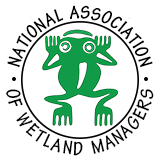By Shelley Hodges and Jeanne Christie – NAWM
Section 401 review of Section 404 permits is the only state regulatory control over dredge and fill activities in wetlands and other waters in 30 of the 50 states. While many of these states define waters to include wetlands and headwaters, they have established only minimum programs for providing oversight review and approval of Section 404 permits. There are also states that issue 401 certification prior to issuance of a 404 permit in order to comply with state statutory or regulatory requirements. The purpose of this project was to strengthen and improve state Section 401 programs. NAWM interviewed state 401 certification staff in 2010. We thank states for their contributions to these summaries. This project was supported by an EPA grant. NAWM compiled detailed summaries of 11 State 401 Certification programs. Each summary includes information that falls into the following sections:
-
401 Certification Case Study Outline
-
Definition of Waters of the State
-
Permits 401 Program is Applied to
-
States 401 Certification Standards (Water Quality and others)
-
401 Certification Implementation
-
Coordination of Programs
-
Application of 401 Certification to Wetlands declared nonjurisdictional due to the US Supreme Court's decisions in SWANCC
-
Description of Types of Conditions (including BMPs)
-
Mitigation Policies and Requirements
-
Monitoring and Enforcement Approaches
-
Staffing
-
Tracking Techniques/Databases
-
Program Fees
-
Important Court Cases
401 Certification Program Summaries
| • | Delaware | • | North Carolina | |||||||||||
| • | Georgia | • | South Carolina | |||||||||||
| • | Idaho | • | Tennessee | |||||||||||
| • | Kentucky | • | Texas | |||||||||||
| • | Louisiana | • | Wisconsin | |||||||||||
| • | Missouri | |||||||||||||
Report on Section 401 Certification Best Practices - Section 401 of the federal Clean Water Act assures that federal agencies will not issue permits or licenses that violate the water quality standards, or other applicable authorities, of a state or tribe through a process known as water quality certification. The importance of this provision in assuring continued state control over their aquatic resources has been well established. But in today’s economic climate – where both state and federal regulatory staff limitations and reductions intersect a public demand for ever greater regulatory efficiency – Section 401 can also be a useful tool in integrating state and federal programs, reducing overlap in a more holistic approach to resource management. For full report, click here.
